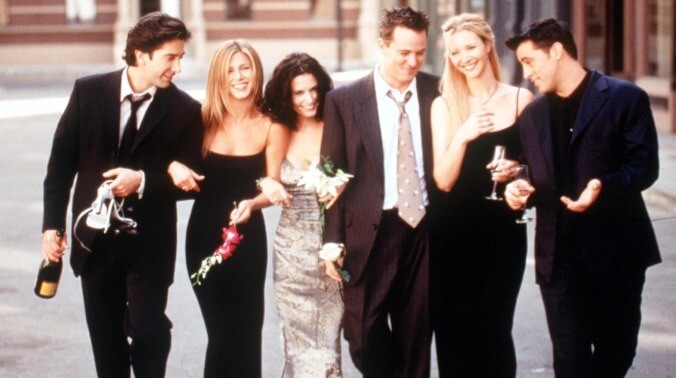Lisa Kudrow says Friends creators had “no business writing stories about the experiences of people of color"
In recent years, Friends creator Marta Kauffman has apologized for the show’s lily-white cast

Ah, Friends. To some, it’s the greatest show of all time. To others, it’s just The Office for geriatric millennials who started receiving AARP fliers in their late 20s. One thing it’s not is a bastion of cultural diversity. The lily-white cast of rich, New York yuppies making fun of the “ugly, naked guy” next door didn’t paint a realistic picture of urban life in the 90s, with characters walking around saying things like “could you be any whiter” and “how you doin’, my fellow white person.”
The show’s lack of diversity has been a blemish in the show’s legacy for Friends creators David Crane and Marta Kauffman, who realized in 2020 that the vanilla Friend group might’ve been a tad gross. “It was after what happened to George Floyd that I began to wrestle with my having bought into systemic racism in ways I was never aware of,” Kauffman told the L.A. Times. “That was really the moment that I began to examine the ways I had participated. I knew then I needed to course-correct.”
Friends star Lisa Kudrow thinks the show’s creators were right to avoid telling stories about people of color because they had “no business” telling those stories. “I feel like it was a show created by two people who went to Brandeis and wrote about their lives after college,” Kudrow told The Daily Beast. “When it’s going to be a comedy that’s character-driven, you write what you know. They have no business writing stories about the experiences of being a person of color. I think at that time, the big problem that I was seeing was, ‘Where’s the apprenticeship?’” Previously, Kudrow conceded that if the show were produced today, “it would not be an all-white cast, for sure.”
And not write about people of color they did. There are so Black people in Friends’ New York City that BuzzFeed listed all 27 of them last year. And what a list it is. First, there’s Aisha Tyler, who played the longest-running Black character on the show (nine episodes), Charlie Wheeler. But who could forget such hilarious side characters as “Man,” “Teacher,” “Kid” (played by famed Smart Guy Tahj Mowry), “Child looking at Chandler,” and fan-favorite “Knockers,” who BuzzFeed describes as [sigh] “a Black woman used for her large breasts to determine whether the man in front of her is gay or not.” Must-see TV, indeed.








![HBO teases new Euphoria, Larry David, and much more in 2026 sizzle reel [Updated]](https://img.pastemagazine.com/wp-content/avuploads/2025/12/12100344/MixCollage-12-Dec-2025-09-56-AM-9137.jpg)































